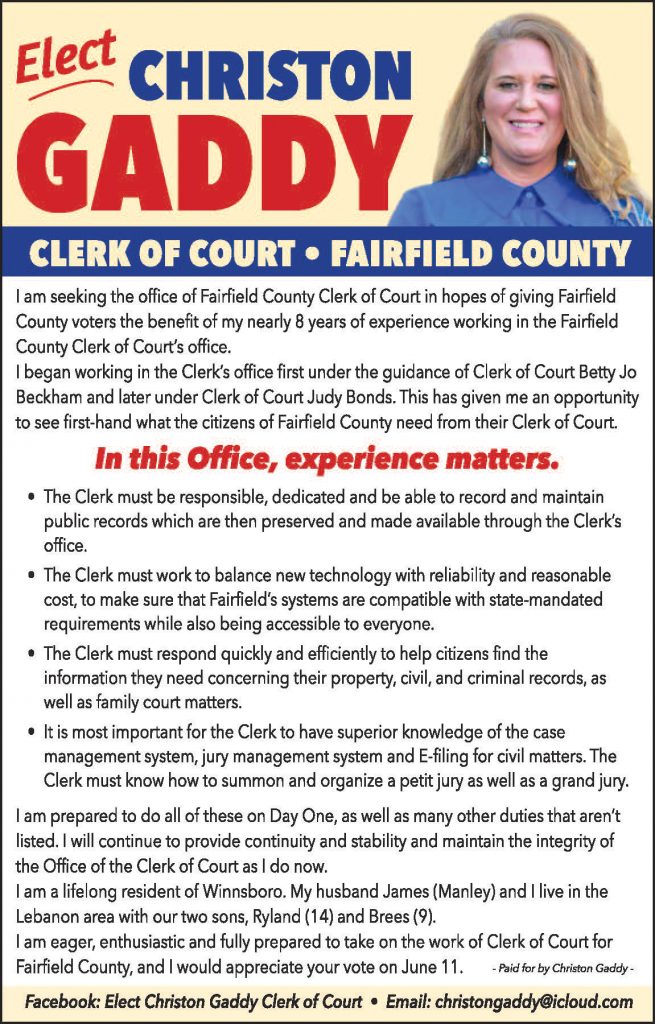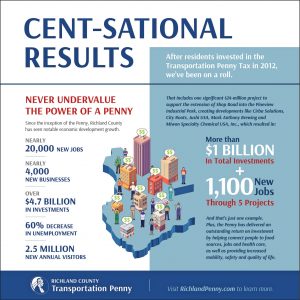Although the public hearing for Fairfield County’s 2013-2014 budget was held three weeks ago, Monday night Council chambers were abuzz with more static than an offshore pirate radio station as citizens from both ends of the county pounded the microphone and bent Council’s collective ear. While an impressive turnout petitioned Council for more recreational opportunities, there were others, perhaps more impassioned, who railed against taxes and the bond issue that would, among other things, pay for those opportunities.
What each speaker had in common, however, was that all were asking Council for something that the County had already addressed.
No, there is no formal plan for recreational development in the county as of now, but the money has been allocated to pay for that plan once it is fully formed. A great deal of money – as much as $500,000 per district, in fact. And Council has thus far been in agreement that what one district doesn’t use will be meted out to other districts with greater needs. The Councilman from District 4, who for nearly the entirety of his political career has been campaigning for just such a thing, said Monday night he feels confident the County is at last on the right track in this matter. And we agree.
Council also, after the dust of public comment had settled (and after the vast majority of those making those comments had departed), gave the final nod on a 2013-2014 budget that is nearly 11 percent leaner than last year’s budget and includes a millage rate decrease (that is not a misprint: DEcrease) of 8.6 mills. And they did so without cutting services.
Government, at all levels, gets a hard time when they foul things up. And they should, for when they do, they foul things up for a great many people, most of whom they have never even met. But we tend to agree with the Councilwoman from District 2, who after voting on the millage rate Monday night said, ‘We finally got something right, for a change.’ We disagree, however, with her vote against the budget; but at the same time respect her reasoning for doing so. It was, she said, what her constituents wanted her to do.
Imagine that. A representative who listens to those whom she represents. If Council at large would listen a little more closely, they might hear constituents who are frustrated with their policies on health insurance supplements, school tuition reimbursements and the hiring of immediate family members for County jobs. There is not, as far as our research can tell, anything illegal or unethical about how they handle these practices, but for many, perception is reality. And the perception, in spite of a reduced budget and lower millage rate, is of a Council that is not exactly pinching every penny.
A more troubling echo from Monday night’s public comments, however, is the notion that the County is doing little more than setting fire to great stacks of cash when it comes to economic development. Fairfield doesn’t need jobs, it was said, and instead of trying to attract industry, the County should be trying to attract retirees with disposable income.
An easy thing to say, the Council Chairman noted, if one has a job or is retired from a successful career. But try telling that to the 11 percent in Fairfield County without jobs. And we could not agree more. Because industry does not just breed jobs, it breeds development, and that development includes the private services and amenities associated with a vibrant workforce. A workforce wants housing, restaurants, bars, movie theaters, grocery stores and a great variety of other things. That is not to say, of course, that any of these things are coming to Fairfield County in the next two or three years; but none of them – including the jobs – will ever come at all unless the groundwork is laid for them to do so.
A vibrant workforce also means a broader tax base, spreading the burden among more people so that everyone pays less.
The idea of attracting retirees with disposable income is not a bad one, but it should not be an ‘either/or’ thing. Fairfield County would do well indeed to attract retirees, particularly military retirees (or anyone else, for that matter) with disposable income, while at the same time working to create an environment in which that income could be adequately, and frequently, disposed.












